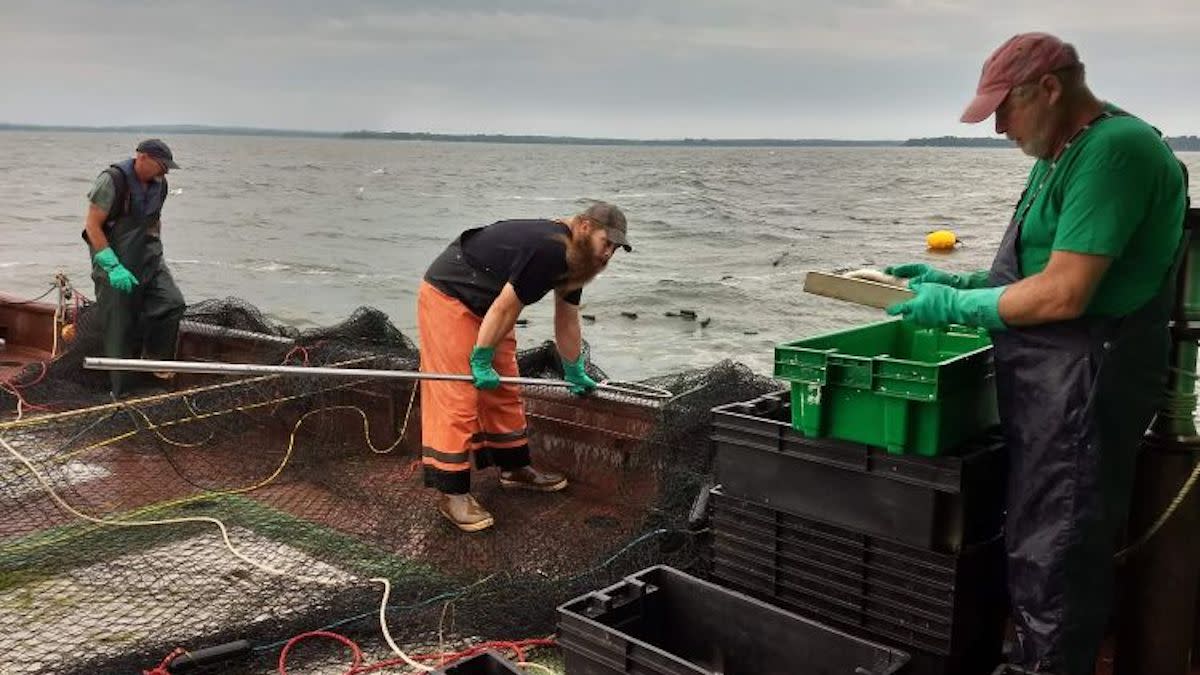This Bill Would Allow Commercial Take of Walleye, Smallmouth, and Perch

A bill introduced in Michigan earlier this month would allow commercial fishermen to harvest and sell sport fish species from the Great Lakes.
These include lake trout, smallmouth, panfish, walleye, perch and other kinds of fish that have historically been banned from commercial harvest. As you can imagine, recreational anglers in the Mitten State are none too happy.
“Short of an outright ban on fishing this piece of legislation is as bad as it gets. This is a five alarm fire,” Justin Tomei of the Michigan United Conservation Club said. “Supporters of the bill are peddling the narrative that we need to protect our commercial fishing heritage. But in Michigan the recreational fishery has an impact on the economy and our heritage several orders of magnitude larger.”
The bill was introduced by Michigan State Representative Jason Morgan. Morgan says he wrote this legislation after his father sold the family’s commercial fishing business a few years ago.
“After years of struggling to make ends meet due to changing lake conditions and an increasingly challenging regulatory framework, my father sold our family business a few years ago,” he said in apress release. “Commercial fishing was a founding industry of our state, generating income for tens of thousands of Michiganders, but it’s now in serious trouble with only three fisheries existing today. We need not only to protect the ecosystem of our Great Lakes but also repeal the harmful regulations that have negatively impacted the fishing industry.”
Commercial fishermen have historically relied heavily on lake whitefish, but that population has declined in some areas in recent years. These anglers say that if they are excluded from catching other species such as perch and walleye, they will become a one-fish fishery.
The Fishtown Preservation Society is one of the advocacy groups pushing for the bill. Amanda Holmes, the society’s executive director, says that the fisheries can be managed to accommodate both commercial and recreational catch to provide “an incredible and readily available local food source.”
The57-page billoutlines exactly how these harvests will be managed. For example, it calls for 25% of lake trout, walleye, and perch to be set aside for commercial fishermen while the remaining 75% will be for recreational anglers. The annual commercial harvest will be divided among the commercial operations, and they will not be allowed to fish beyond those quotas. They will also be required to adhere to slot limits. Walleye measuring less than 15½ inches, black crappie measuring less than 7 inches, and perch measuring less than 8½ inches in the round may not be sold anywhere in the state.
None of these assurances of science-based management have been enough to satisfy recreational anglers, and understandably so. The Michigan United Conservation Club points out that these sport fish species are planted, reared, and/or managed using recreational angler money through fishing license sales and the Dingell-Johnson Sportfishing Act. It isn’t fair, they say, for commercial outfits to benefit from a system they didn’t invest in.
Recreational anglers also note that their industry is far larger than the commercial industry. The MUCC claims that recreational fishing in Michigan supports more than 171,000 jobs while the Fishtown Preservation Society says that there are only a handful of state-licensed commercial fishermen in the state. While there were 339 licenses issued 100 years ago, there are only 41 active licenses today.
The bill number isHB 5108. It’s being co-sponsored by 30 additional representatives, and it’s currently under consideration in the Natural Resources, Environment, Tourism and Outdoor Recreation Committee. If you live in Michigan and want to get involved,get in touch with your representatives.
Feature image viaMichigan State University.
Shop
Sign In or Create a Free Account
Related

Wildlife Management
This Bill Would Allow Commercial Take of Walleye, Smallmouth, and Perch

Wildlife Management
The Deer Camps and Fish Shacks of American Gangsters



